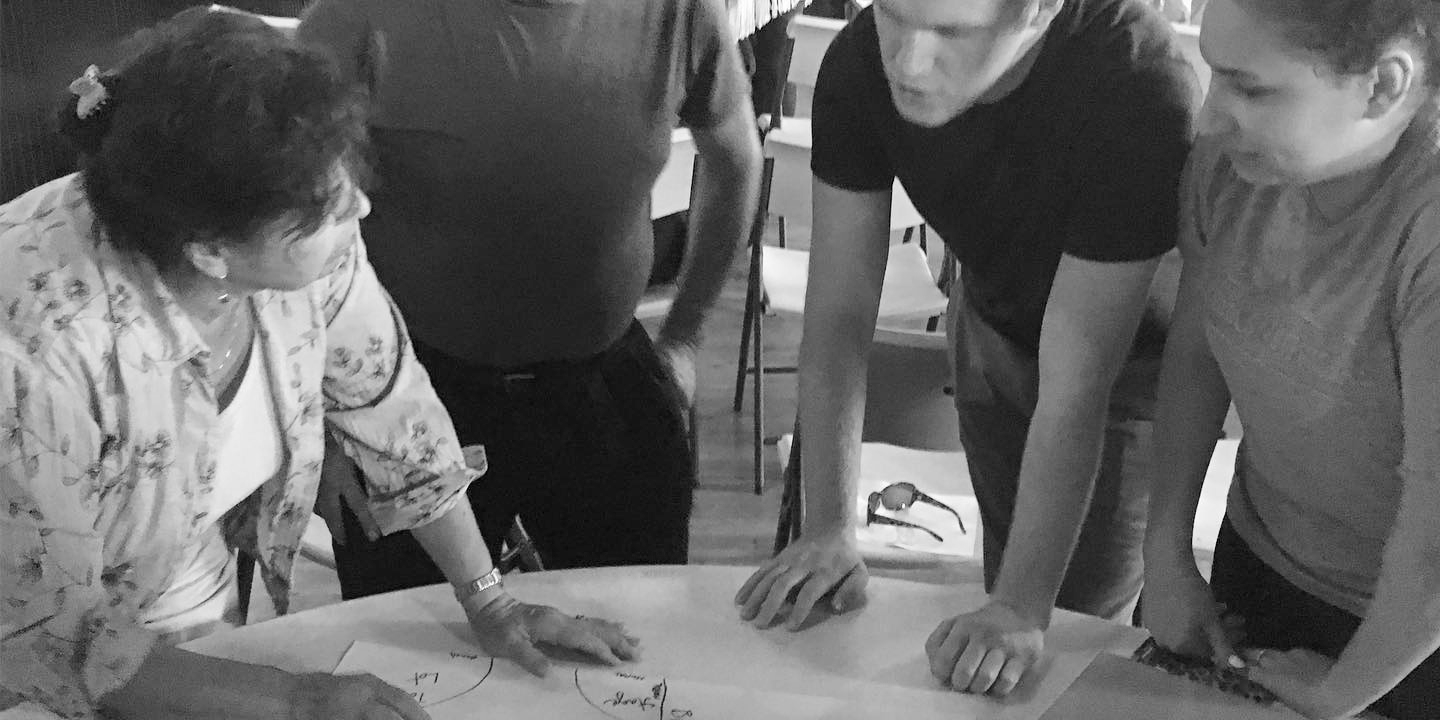“Being able to stay in one place and grow knowledge about a neighborhood, and really plant roots and have relationships, is something that I think people deserve.” — Kiel Lopez-Schmidt, Executive Director of South Tower CLT
Located north of downtown, the Tower District is one of Fresno’s first streetcar suburbs. Built as a walkable community—something residents have fought to protect—the area is known for its rich history of activism and community organizing. Notably, the district has been a center for the LGBTQ+ community, hosting Fresno’s inaugural Pride parade in 1991 along its main corridor, Olive Avenue.
Like many other Fresno neighborhoods, the Tower District also grapples with the legacy of redlining and systemic barriers. Especially in the neighborhoods south of Olive Avenue, known as South Tower, deed restrictions and other discriminatory practices barred people of color and immigrants from homeownership. Today, environmental health issues, economic disparities, and political marginalization are just a few of the ongoing challenges faced by South Tower residents.
In keeping with the community’s tradition of grassroots problem-solving, South Tower Community Land Trust (South Tower CLT) emerged to tackle community needs: affordable housing, park access, and overall improvement to quality of life. The organization emphasizes community control of land, buildings, and civic resources.
“We’re not limited by what’s in front of us and just trying to stop things—we want to imagine the radical possibility of what could be here. We wanted to create an organization that’s not just impacting affordable housing, but also building community power and impacting these other issues,” explains Kiel Lopez-Schmidt, Executive Director of South Tower CLT.
Though South Tower CLT’s staff and board had been working on projects in the community for years, the organization formally received its nonprofit status in 2022. As a new entity, South Tower CLT partnered with Community Vision’s consulting team to strengthen its governance and operational framework.
“The team communicates well and meets us where we’re at,” said Lopez-Schmidt of their partnership with Community Vision. “I think having a local presence of Community Vision has really been wonderful.”
With a board predominantly comprising South Tower residents, including half below 100% Area Median Income, the organization ensures representation of its community’s diverse voices. Creating unconventional board seats to accommodate the lived experiences of community members demonstrates their commitment to inclusivity, such as creating a household seat shared by a young couple with children eager to participate but unable to commit full-time due to job and family constraints.
Parks, housing, and quality of life are at the forefront of South Tower CLT’s priorities. With only 0.3 acres of park land per 1,000 residents, the organization is working tirelessly to increase access to green spaces. Their current project, transforming an old police station into a community park, stands as a testament to their dedication to community-led initiatives.
As an emerging affordable housing developer, South Tower CLT is engaged in several projects, like partnering with struggling homeowners to build accessory dwelling units (ADUs) on their property. By offering site planning, connections to financing, and other ADU construction services, South Tower CLT will help these homeowners augment their income while adding affordable housing to the neighborhood. Community Vision sponsored the organization’s application for an AHEAD economic development grant from the Federal Home Loan Bank of San Francisco to support this project.
South Tower CLT also creatively supports LGBTQ+ residents, who often experience discrimination, harassment, and homelessness. Through events like their Queer Housing Summit, South Tower CLT is creating space for community conversations and collaboration to address these issues. Last year, Community Vision sponsored South Tower CLT’s first annual summit.
As South Tower CLT continues to grow and evolve, they are a testament to the power of community-driven change. Through collaboration, determination, and a deep-rooted commitment to justice, they are paving the way towards a more inclusive neighborhood without barriers.
This story was featured in our FY23 Annual Report. Read the full report here.





